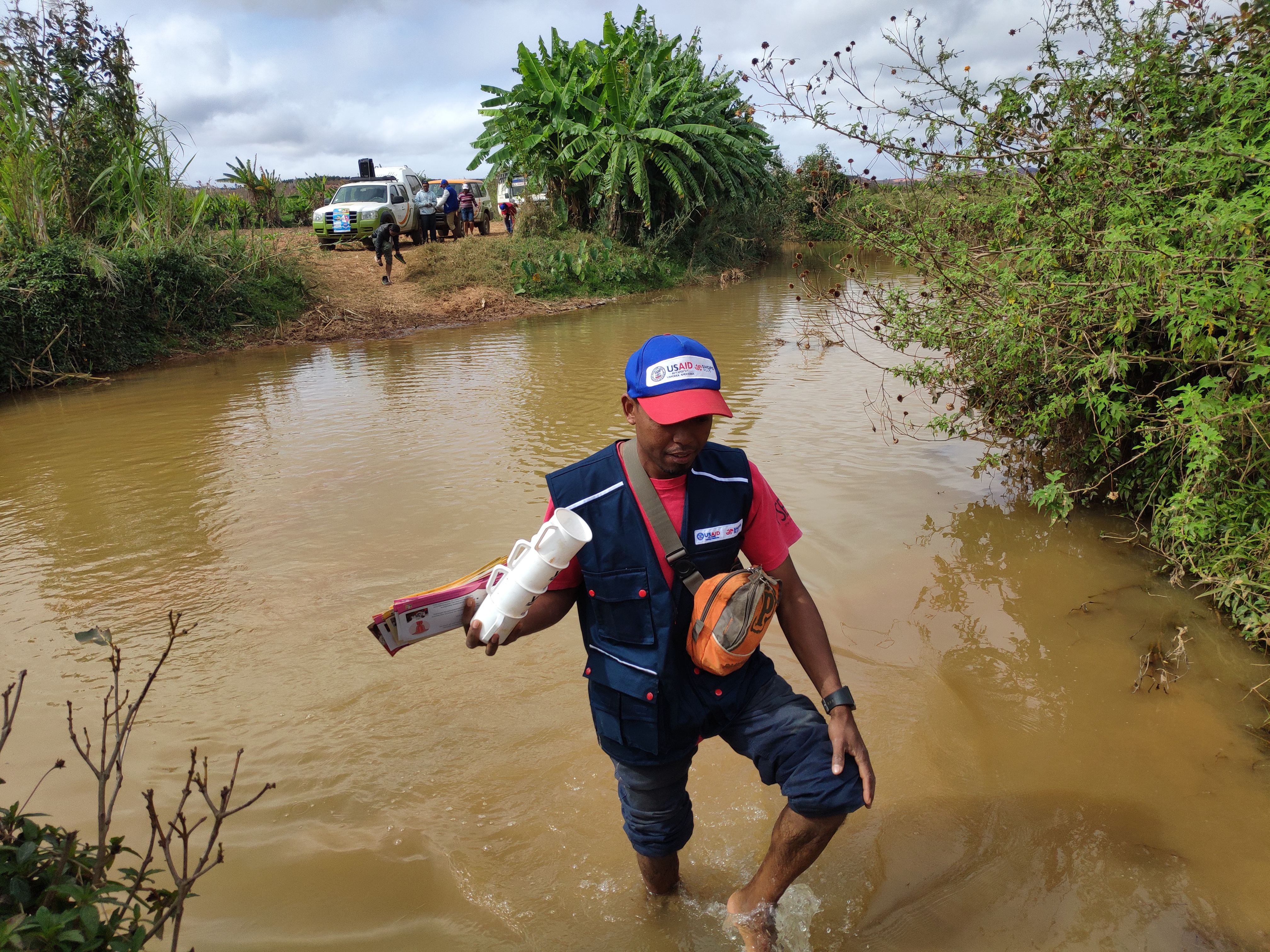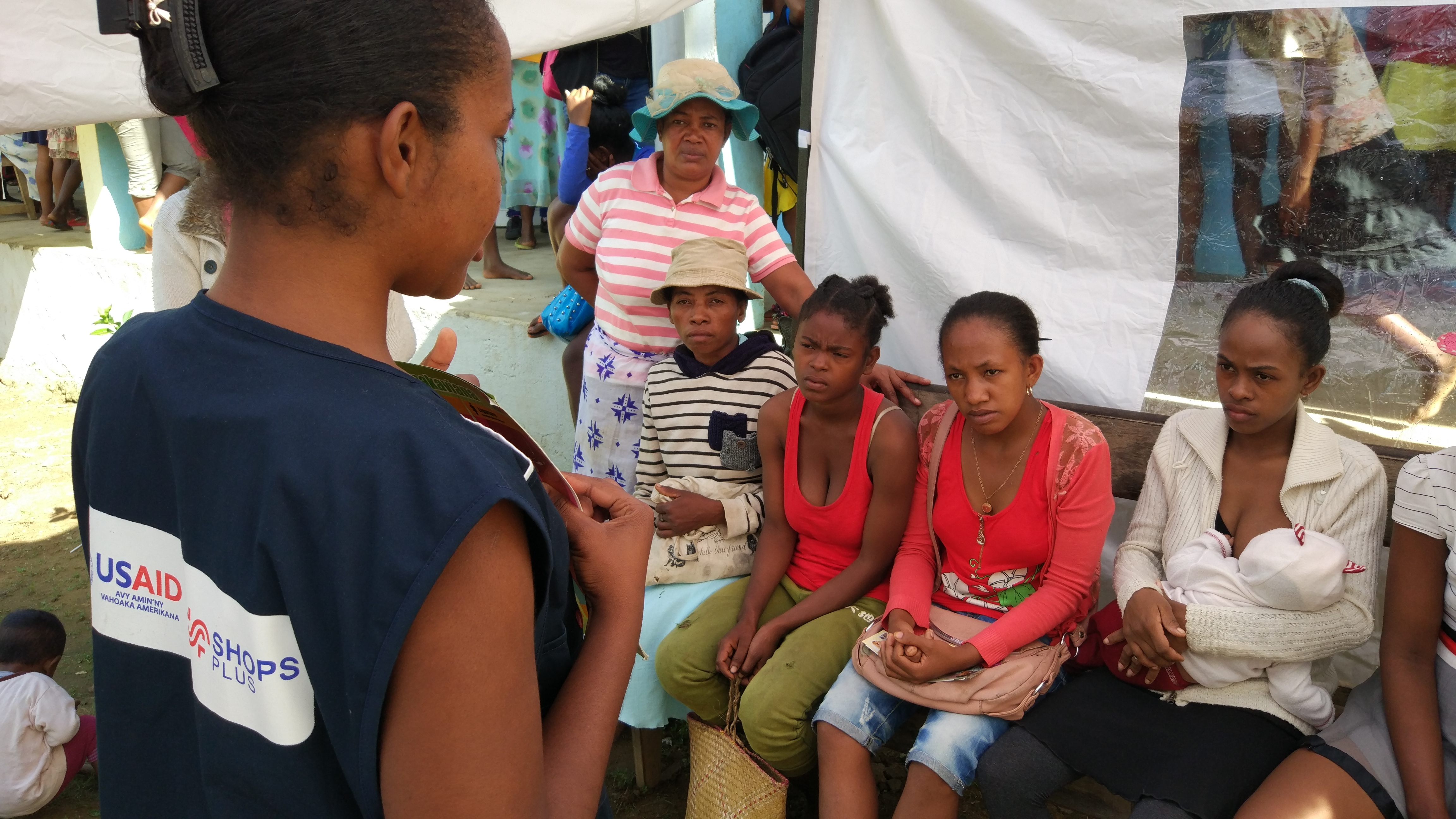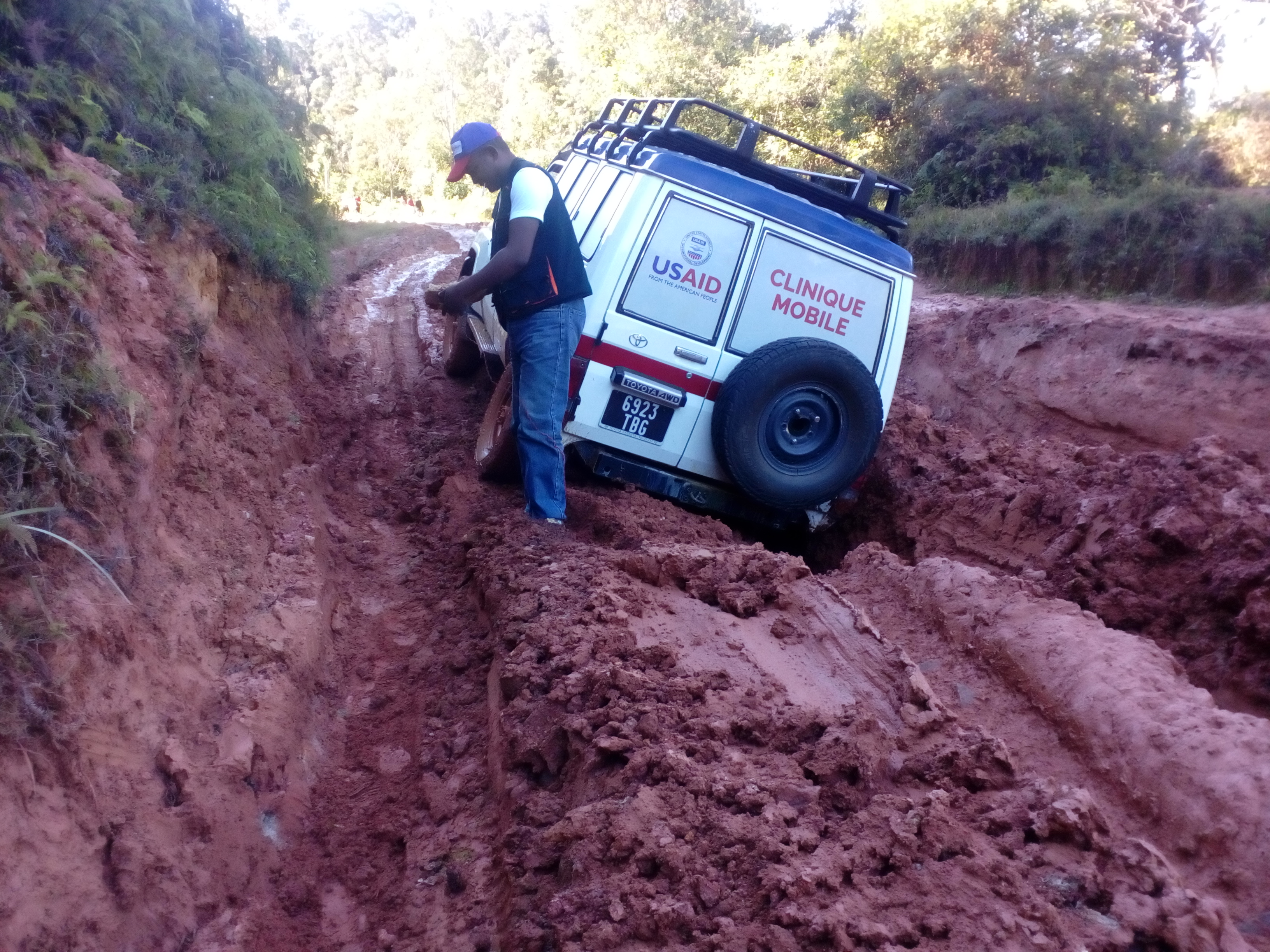Mobile outreach teams provide contraception services to women in remote areas

SHOPS Plus uses mobile clinics to provide a range of contraceptive methods to women, particularly married women, in the most difficult-to-reach areas of Madagascar.
Each mobile team consists of a doctor, a midwife, and a driver. They travel around the country in a vehicle equipped with an examination table, family planning products, supplies, and equipment for the prevention of infections. The effort complements the provision of services in the public sector where long-acting and reversible methods are not available. Since the clinics were launched in January 2018, they have counseled over 90,000 men and women and inserted 1,197 IUDs and 10,584 implants.

For 25 days each month, 12 mobile clinic teams traverse 15 regions with the aim of serving the most remote areas. The roads are difficult to navigate, and to reach some villages, the team has to abandon the vehicle and ride in on motorcycles, cross rivers by boat, or walk on foot for several kilometers. The mobile clinics offer a range of services, including long-acting reversible contraceptive methods such as implants and IUDs. All visits include a detailed explanation of the different contraceptive methods available to ensure that clients are able to make informed decisions. In addition, before insertion of an implant or IUD, patients are given a full examination, while clients who choose short-term methods can access them directly from the mobile clinic without being referred to a local facility.
In order to ensure and maintain quality service standards, each team receives practical training and is subject to regular supervision provided by SHOPS Plus. The project’s partner Population Services International distributes a wide range of long- and short-term contraceptive methods with funding from USAID, which helps supply the clinics.

Madagascar has experienced a considerable increase in its contraceptive rate over the last 10 years, rising from 7 percent to 33 percent in 2012. However, despite these efforts, unmet need among married women remains high at 18 percent and there is a high maternal mortality rate of 478 per 100,000 births.
These mobile outreach clinics play a key role in delivering quality services and products to populations in rural settings, and their contribution to the reduction of maternal mortality in Madagascar is pivotal in achieving the FP2020 goals.